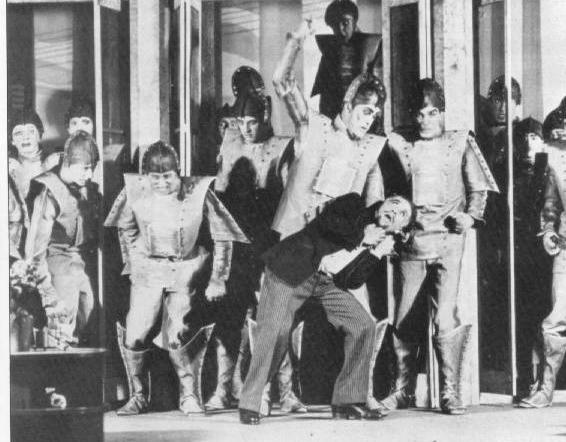Corporations have existed in legal terms with a sort of mysterious "personhood" since their inception. It was a clever construct that allowed for better governance structures for big businesses and also as a means for privately held businesses to be separated from their owners. This is all well and good as long as the "personhood" aspect is understood to be metaphorical. In the reality that most humans live in,
corporations remain legal structures which exist only on paper or, in our more modern world, as bits of data. No one was suggesting that corporations needed to be fed or that they should procreate -- except in even more strictly metaphorical terms. Because certainly the metaphors run absolutely rampant when it comes to ascribing human traits to corporate behavior. But human rights... that is another matter entirely.
 |
| From R.U.R. |
Reading the Religious Freedom Restoration Act of 1993, it is clear that it was designed to protect a Person from having his or her religious freedom restricted. In spite of how adamantly SCOTUS pushes for Corporations to be treated as flesh and blood equals, sane people everywhere still seem to agree that humans and robots should not be treated as the same thing. Perhaps, as Karel Čapek suggested in his 1920 allegorical fantasty, it will be possible one day for Corporations to develop a soul, to feel love, but that seems highly improbable from the vantage point of Reality.

No comments:
Post a Comment
Thank you for contributing your thoughts. Please remember to always be respectful of others. Comments are moderated, so please do not waste time with SPAM or hate speech.